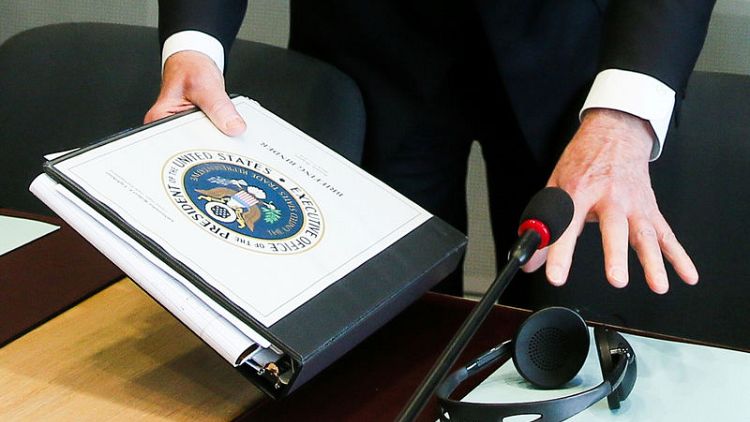By Philip Blenkinsop
BRUSSELS (Reuters) - EU-U.S. talks that could prevent the United States imposing punitive car tariffs have made some progress, but Washington must decide if it wants to negotiate with Brussels on a broad removal of import duties, the EU trade chief said on Monday.
EU countries last month cleared the start of formal trade talks with the United States on two fronts: cutting tariffs on industrial goods, and making it easier for companies to show their products meet the standards of the EU or U.S. market.
EU Trade Commissioner Cecilia Malmstrom said the two sides had made progress on the latter, conformity assessment, as well as discussing potential for regulatory cooperation, which could avoid the need to test on both sides of the Atlantic.
"The aim is not to change our respective systems," she told a news conference after a meeting of EU trade ministers. "Here, we are making some progress".
However, Malmstrom recognised that the two sides had conflicting mandates over tariff reduction, with the United States wanting to include farm products and the European Union united in opposing this.
"The ball is now in the U.S. court to start these negotiations," Malmstrom said.
EU trade ministers also discussed on Monday another area of tension with the United States, namely Washington's blocking of appointments to the World Trade Organization's appellate body that rules in disputes between WTO members.
That body is set to be paralysed at the end of the year when two of its three remaining members step down. Three are required to hear any case.
EU countries agreed the Commission should reach out to other WTO members to find an interim solution that retains the binding character of the appellate body's decisions and the WTO's two-tier system of adjudication.
One possible avenue is to use article 25 of the WTO's existing Dispute Settlement Understanding, which allows the settlement of disputes via arbitration, but Malmstrom stressed this was not satisfactory in the long term.
"By end of the year we will need to make sure, and other countries feel the same, that there is something to guarantee our interests. There are provisions in article 25, but it would be interim, it would be temporary," she said.
(Reporting by Philip Blenkinsop; Editing by David Holmes)



